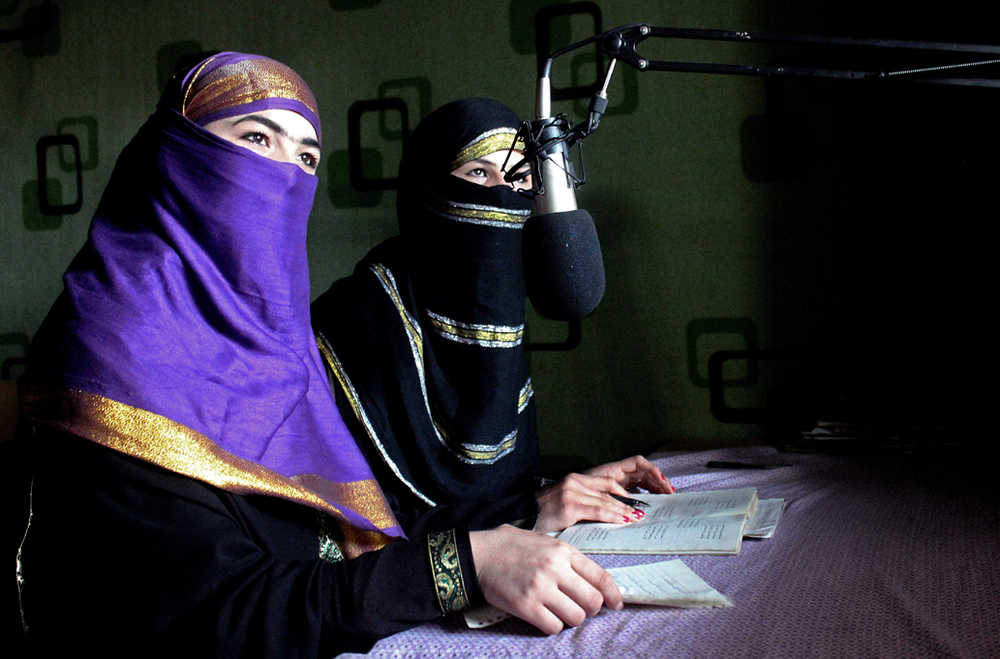KABUL, Afghanistan — Six months after fleeing a Taliban assault on her city, the owner of an Afghan radio station devoted to women’s rights is back home and returning to the airwaves.
Zarghona Hassan is a lifelong activist and the founder of a radio station in Kunduz that until last year reached hundreds of thousands of listeners across northern Afghanistan, where the vast majority of women are illiterate and largely confined to their homes.
Radio Shaesta — Pashto for “beauty” — had sought to educate women about their rights and address taboo subjects like reproductive health and domestic violence.
A program called “Unwanted Traditions” took a critical look at centuries-old Afghan customs, like the forced marriage of young girls in order to resolve disputes. “Introducing Elites” featured interviews with women who have succeeded in politics and activism, and those who have helped other women in their communities.
“We have had an enormous impact on the lives of women, raising their awareness of their rights, of what they can achieve, encouraging women to take part in politics, to vote and to put themselves forward for provincial council seats,” Hassan said.
Programming also encouraged women to take an active role in ending the country’s 15-year war by exhorting their brothers and sons to lay down arms, she said.
Radio is a powerful medium in Afghanistan, where the literacy rate is less than 40 percent and much of the population lives in remote communities. Wind-up radios requiring no batteries are popular and widely accessible in communities where electricity is erratic or non-existent.
In northern Afghanistan, where just 15 percent of women can read and write, radio is a rare portal to the outside world. The U.N. Development Program says Shaesta reached up to 800,000 people.
“I’ve met illiterate women weaving carpets with the radio on because they can listen and it doesn’t interrupt their work,” Hassan said. “I once met a farmer out in his field who had a radio hooked over the horn of one of his cows.”
Hassan often invited Islamic scholars onto her programs to give their seal of approval. But the Taliban, who espouse a harsh version of Shariah law, view her and other women’s rights activists as purveyors of Western influence who threaten the country’s moral fabric.
She has received more death threats than she can count, one of which even specified an exact date. So when the insurgents stormed into Kunduz on Sept. 28, she knew she had to run.
“The Taliban had a list of all the women who were working in the government, civil society, media, women’s organizations,” she said. “I knew they were going to come for me.” She hid in a relative’s basement for two days before donning an all-covering burqa and fleeing the city.
The Taliban held Kunduz for three days, during which they looted businesses and hunted down activists and journalists. Afghan forces backed by U.S. airstrikes pushed them out more than two weeks later, but by then the militants had looted Shaesta and burned it to the ground, along with another radio outlet run by Hassan that was oriented toward youth.
Now, six months later, she has returned to Kunduz, and Shaesta has come back on air in time for International Women’s Day on March 8. She was able to rebuild the station with a $9,000 grant from the UNDP, which said it hopes to encourage a “courageous voice for change.”
“Women’s rights are a key lever toward improving the lives of the entire community,” said UNDP country director Douglas Keh. “When women and girls have the same opportunities (as men and boys) in education, and the same economic opportunities, society as a whole benefits.”

